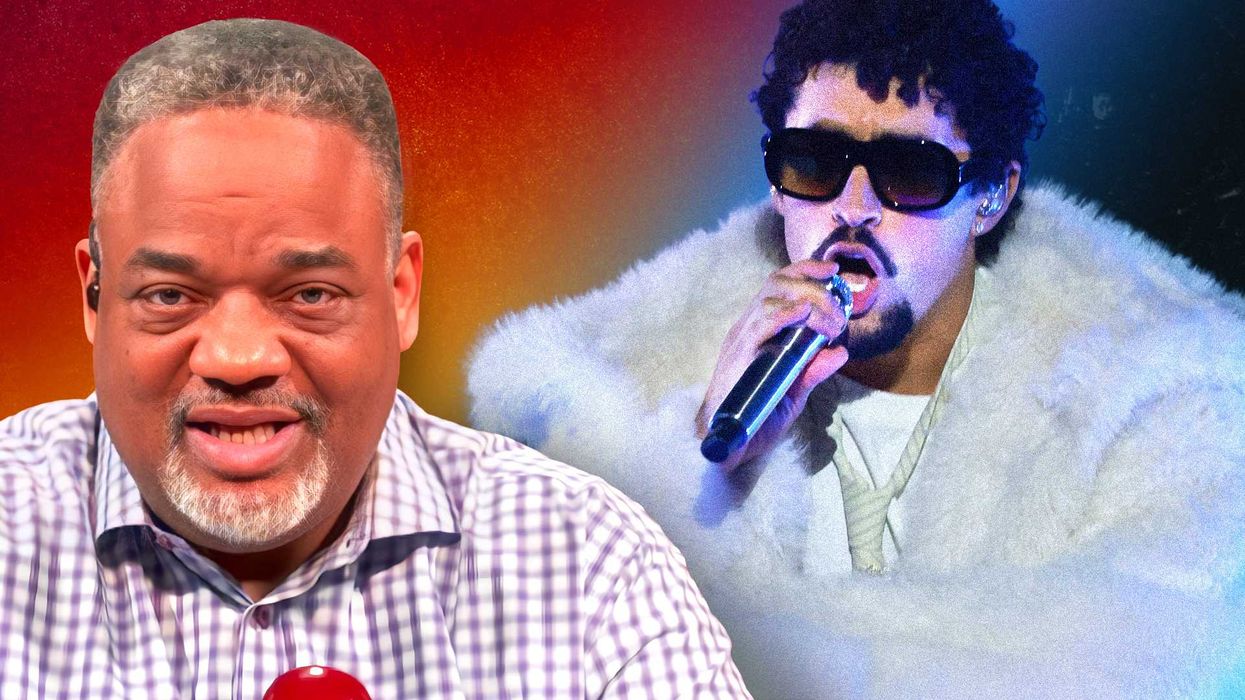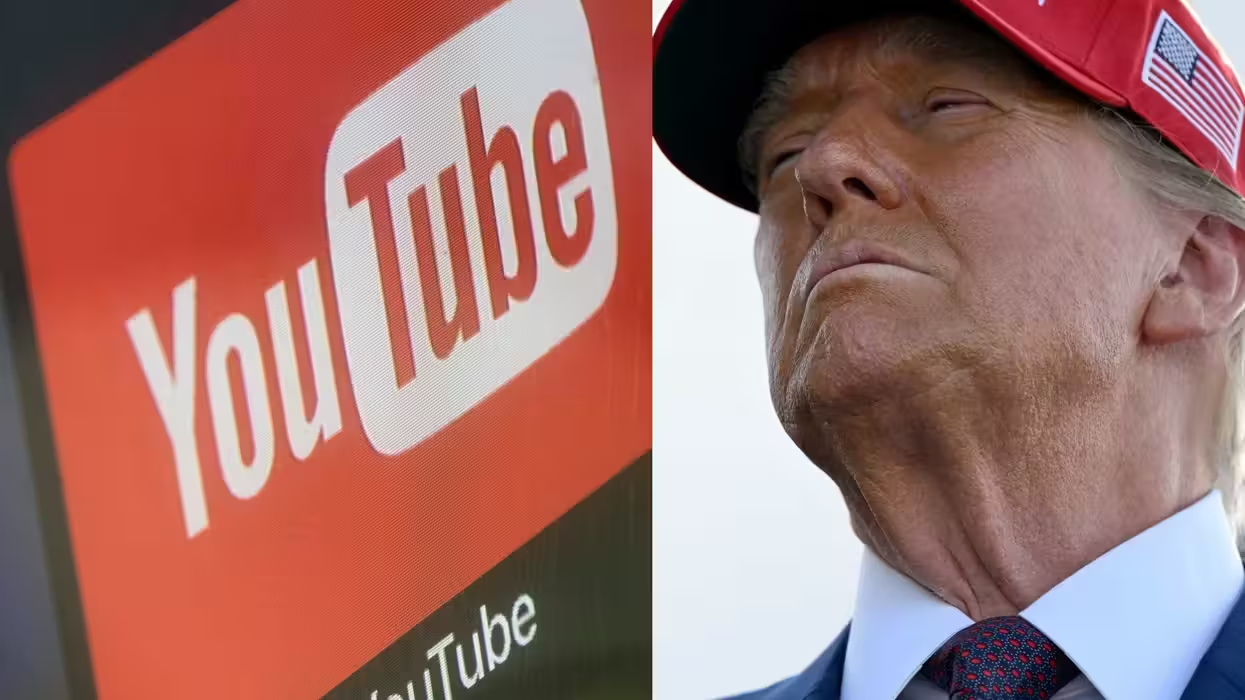
© 2025 Blaze Media LLC. All rights reserved.
Can a Rubber Wrist Band Improve Performance? Some NFL Athletes Say 'Yes
February 02, 2011
"It relaxes me. I sleep better."

ARLINGTON, Texas (AP) — Pro football players can be a hilariously superstitious bunch. Most would wear a necklace strung with garlic bulbs if they believed it repelled pass rushers the way it supposedly does vampires.
That helps explain the latest juju to become this season's must-have fashion accessory in the NFL — a slim rubber wrist band with holograms the size of small watch faces on either side. Although claims that the bracelet improves the wearer's balance and power have been widely debunked, try debating that with a guy who stands 6-foot-3 and weighs 318 pounds.
"It relaxes me. I sleep better. And," Green Bay backup guard Adrian Battles explained with a straight face, "I haven't fallen down the stairs even once since I started wearing it."
I didn't have the stomach to ask Battles how many times he bounced down the steps on his head before he put on the band. But apparently its appeal isn't just limited to therapeutic powers.
"It's stylish, too," Packers teammate Chris Campbell offered. Yet the moment Battles was out of earshot, he pointed to his own head and smiled broadly.
"It's all up here," Campbell said. "It doesn't matter if it works, only whether you believe it does."

But if it does, the Packers could skip Sunday's Super Bowl game, scoop up the Lombardi Trophy right now and grab the next flight home. An overwhelming majority of Green Bay's players sport a bracelet, and several of the mainstays, led by nimble nose tackle B.J. Raji, wear more than one.

The Steelers actually were early adaptors of the power band, but since the craze swept through their locker room nearly two years ago, only a few holdovers still have them on. Plenty of the Steelers do wear something on the their wrists — but those are usually rubber bands to tie off ponytails or cascading dreadlocks.
No matter. Pittsburgh coach Mike Tomlin said he's not going to lose any sleep over balance imbalance.
"I've got a lot more things about Green Bay that worry me," he said, "than whether they wear those power bands."
The Steelers' most notable exception was defensive end Ziggy Hood, though his were nearly lost amid a collection of bracelets covering both wrists. To honor family members, friends, his college (Missouri), fallen teammates and the birth of a current teammate's son, he sported an array of black, white, yellow and multihued bracelets.
"I took mine off," teammate Keyaron Fox said, "when I realized I couldn't jump over walls just because I had one on. Thankfully, Ziggy's got a lot of us covered."
Though other pro athletes from the NBA's Shaquille O'Neal to soccer's David Beckham swear by the bands, Power Balance, the California-based company that sells them, admitted recently "there is no credible scientific evidence that supports our claims" of improved balance, strength and flexibility. The acknowledgment came in response to a challenge from the Australian Competition and Consumer Commission and included an agreement by the company's subsidiary there to give refunds to customers who believe they were bamboozled.

Sports scientists elsewhere have derided them as little more than "good luck charms." But given athletes' unending search for any kind of edge, the bracelets popularity should come as little surprise.
Michael Jordan wore his basketball shorts from North Carolina beneath his Chicago Bulls' version his entire pro career and Yankees slugger Jason Giambi famously donned a thong every time his batting average plummeted. That strip of underwear attained so much status that slumping teammates occasionally tried to borrow it. Even that seems sanitary, though, compared to former NHL center Bruce Gardiner's habit of dipping the blade of his stick in a toilet before each game for good luck.
No player on either team at media day let slip anything that gross. In fairness, other than the gullible few, even most of those who wore the bracelet accorded it little real power.
"No idea what's in it," Pittsburgh's Aaron Smith said, "and I don't care. My girl gave it to me and that's good enough."
So maybe it figures the closest thing to an argument wasn't over whether the bracelets worked, but why players who were skeptical bothered to keep them on.
"I got it from my girlfriend," Packers running back Quinn Johnson said. Sitting alongside him, teammate Dimitri Nance was chuckling. But he, too, was wearing one of the bands.
"So what's your excuse," Martin was asked.
"Well," he paused, breaking into a laugh, "I got this from his girlfriend, too."
___
Jim Litke is a national sports columnist for The Associated Press. Write to him at jlitke(at)ap.org
Want to leave a tip?
We answer to you. Help keep our content free of advertisers and big tech censorship by leaving a tip today.
Want to join the conversation?
Already a subscriber?
Jonathon M. Seidl is a former managing editor of Blaze News and a best-selling author and speaker. His next book, “Confessions of a Christian Alcoholic,” will be released on October 7, 2025.
Jonathon M. Seidl
Jonathon M. Seidl is a former managing editor of Blaze News and a best-selling author and speaker. His next book, “Confessions of a Christian Alcoholic,” will be released on October 7, 2025.
more stories
Sign up for the Blaze newsletter
By signing up, you agree to our Privacy Policy and Terms of Use, and agree to receive content that may sometimes include advertisements. You may opt out at any time.
Related Content
© 2025 Blaze Media LLC. All rights reserved.
Get the stories that matter most delivered directly to your inbox.
By signing up, you agree to our Privacy Policy and Terms of Use, and agree to receive content that may sometimes include advertisements. You may opt out at any time.





